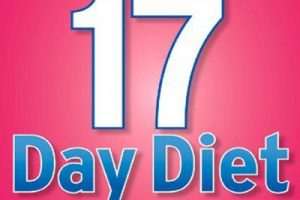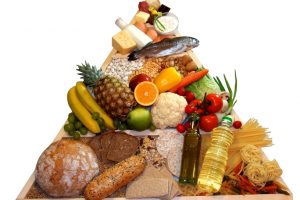The HCG diet dates as far back as 1954 when it was first introduced by Dr, Simeons. Dr. Simeons was a British physician and who carried out studies on obesity and came across HCG while in Rome practicing medicine.
The HCG diet has since been a controversial subject and although it is practiced in a number of clinics it is still not recognised by the FDA as safe. In this article we will look at what is the HCG, if safe and most of all does it work for weight loss?
The HCG diet explained
The HCG diet as practiced today is pretty much the same as the HCG diet Dr. Simeons introduced 57 years ago. There may be different variation of the diet available; however they are all based on the principles of Dr. Simeons. The original form of the diet consists of consuming a very low calorie diet of 500 kcal supplemented with low doses of HCG on a daily basis. The HCG can be taken via injection, orally (liquid or pills) and more recently is available as a transdermal (on the skin) cream.
The hormone used in the weight loss programs is usually laboratory produced from cell cultures and not harvested from pregnant women. In some diet protocols a homeopathic version may be used which can be taken in the form of a spray or drops.
The diet can be followed for a long period, and usually a 40 injection or a 15 kg weight loss limit is imposed at a time.
What can you eat with the HCG diet?
The 500 kcal food intake proposed with the diet can be quite strict. The original protocol devised by Dr. Simeons allows seasoning, tea, coffee and water. Also the ratios for the 500 kcal should come from approximately 200gr of fat-free protein and a very small amount of starch. A list of vegetables is allowed as is a specific list of fruit.
Some variations of the diet can be less strict; however they still do limit the food intake in 500 kcal per day. One of the popular protocols available is that devised by Kevin Tredeau. His protocol is divided into four phases. Kevin Trudeau’s protocol in general recommends organic food, plenty of herbal teas and some exercise and is a little bit less strict than the original protocol.
What is HCG?
HCG stands for Human Chorionic Gonadotropin hormone and is secreted during pregnancy from the fertilised embryo at first and then from the placenta. The role of HCG during pregnancy is to preserve the corpus luteum (the site in the ovaries where the egg has come from). The corpus luteum in return will secrete the hormone progesterone and oestrogen. It is also considered to be involved in the foetal production of testosterone, enhance corticosteroid production and suppress the mother’s immune reaction to the foetus. Some studies also suggest that HCG hormone in pregnancy is involved in conserving energy and fat deposition and is one of the mechanisms responsible for women gaining weight during pregnancy.
HCG is also used to treat some medical conditions and as a fertility treatment.
HCG and weight loss: the theory
- The theory behind the HCG is that the hormone plays a role in stimulating the hypothalamus (part of the brain). The hypothalamus which is related in controlling metabolism will then mobilise the fat from the fat stores of the body and make them available for use. Some of the clinics / theories support that the HCG diet will ‘reset’ the hypothalamus.
- The 500 kcal food intake is related in that the dieter does not need any more calories as the body will be using the fat which is released from the fat stores. Some studies have also suggested that HCG works in releasing fat when a low calorie intake (energy deficiency) is present.
- Dieters should expect to lose an average of 1 – 2 pounds of fat per day. The clinics support that it is healthy to lose that amount of weight per day as it all comes from fat and not from muscle. Exercise is sometimes recommended to guarantee fast weight loss, as is increasing vegetable and fibre intake.
- Dieters should be expected to feel hunger at the first few days but that will slowly stop. Supported on the theory that energy will be coming from the fat stores, dieters are advised that they will feel healthy and will report a feeling of wellbeing.
- HCG diet will ‘reset’ the hypothalamus and it will also help in making a change for the better in appetite. The eating behaviours adopted through the HCG diet will stay with the dieters even after they have finished. Exercise is recommended in order to maintain the weight loss.
HCG diet the facts and weight loss tips to take with you
- Most of Dr. Simeons theories come from observations he made himself through his practice. There are a few studies carried out in the 1960’s and ‘70’s however they have shown controversial results. More recent studies and reviews carried out in the effectiveness of HCG hormone in obesity and weight loss suggest that there is not enough scientific evidence to support that it actually works. More specifically they suggest that there is not enough scientific evidence to show that HCG causes weight loss, redistribution of fat, decreases hunger or that it induces a feeling of well-being.
- A study carried out in 2007 looked at the effects of HCG in vitro (in the direct cellular level rather than indirect measurements i.e. weight measurements, observations etc). Researchers found that HCG had no direct effect in the breakdown and mobilisation of fat from the tissues. They also suggested that HCG plays a role in conserving energy and may be an influencing factor in weight gain and fat deposition in pregnancy. One of the side effects included for use of HCG as a fertility drug is weight gain.
- One theory the above study suggested is that HCG may indirectly through other pathways stimulate growth hormone which can influence weight loss. An argument that can be made here is that, if weight loss is achieved through growth hormone stimulation and not directly from the HCG, then why not supplement with growth hormone instead and get the same results.
- Most clinics will argue that there aren’t any serious side effects or dangers with using HCG in the low dosages the diet suggests. Some of the people, who have reviewed HCG, suggest that some of the side effects include nausea, headaches, constipation, cramps, and trouble with sleeping.
- Supplementation of HCG is not approved by the FDA as a safe weight loss protocol.
- A lot of people will testify that it works and they will lose weight. With a 500 kcal food intake anybody would lose weight. That calorie intake would be borderline malnutrition and if you starve yourself for as long as the diet suggests no doubt you will lose a lot of weight. This is not miracle or magic cure. Even with metabolism slowing down, 500 kcal are hardly enough to cover for basic energy requirements. The energy you need to be alive let alone function has to come from somewhere, so your body will mobilise its stores, including fat, glycogen (sugar store) and protein.
- With such a low calorie regime you will not just lose weight, you will lose water and protein (in the form of muscle, enzymes etc). This is not recommended as healthy and can have negative effects to health.
- Another testimony that I have come across is that people must stick to the 500 kcal as even an alcoholic drink or the slightest of deviation will cause them to put on a couple of pound overnight. Well I will argue here that if HCG is such a miracle making weight loss cure a slight calorie deviation surely shouldn’t cause you to put on weight? With such a low calorie intake the body will try to reserve as much as possible. So if you give it a little bit of extra calories will think that it needs to save it as is hard times.
- Hunger will disappear after a few days. This is normal and observed in starvation as well. There are a number of things that happen in the body such as using ketone bodies (derived from break down of fat and protein) to make energy.
- If you are determined to follow the HCG diet regardless do try to do it in the safest of ways.
- Consult a medical professional. You could have an underlined medical condition that could be affected from HCG. In addition, the low calorie intake could affect your health. Do not follow if pregnant.
- I would not recommend following exercise through the diet. This is not something I would usually say, but such a low calorie intake coupled with exercise can place considerable amounts of stress to the body. Moreover, 500 kcal may not be sufficient energy intake to sustain the exercise requirements. If you are putting too much strain in your body can have detrimental effects to your well-being and health.
- Try buying the hormone or following the diet form a reputable source. Especially when purchasing from the internet, as you have no means to know what they are selling you. Prefilled injections could also be contaminated, not prepared under proper conditions and guidelines, and most of all the quality could be compromised. It is your body and it is your health. Make sure is safe.
- Give the healthy balanced diet coupled with exercise option a try. It may prove as effective and healthier.





